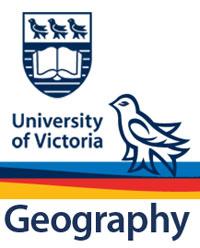On Tuesday morning, our group took part in what may prove to be a creative, effective means of tackling the issue of homelessness in Victoria: Micro-housing. Mayor Lisa Helps facilitated a workshop on the subject, bringing together city planners, politicians, officials, and citizens to discuss pathways toward housing a large population of homeless people in our city. The city is drawing inspiration from grassroots organizations in Oregon, who are paving the way in developing vibrant micro-housing, or 'tiny home' villages, aimed at providing transitional housing for those in need of it.
Participants heard Mark Lakeman speak to the Portland's Dignity Village, a community of small homes aimed at providing shelter and stability for Portland's homeless. These communities, as he emphasized, are low budget, have a small ecological footprint, allow for community members and youth to engage in skill and community building, and contribute both to lowered crime rates and high voting rates in the areas within which they are built. As such, they simultaneously provide pathways to addressing social inequities and climate change, while cultivating collaboration through place-making. The city also hosted Andrew Heben, who spoke to us regarding Eugene, Oregon's OpportUNITY Village. He discussed several simplified construction techniques and the importance of community participation in lowering costs for such developments.
Mark Lakeman believes that our city is in a state of emergency when it comes to the amount of people living on the streets and in need of homes. The way we see it, this approach provides a win-win-win situation for the City of Victoria - building communities at a low cost and impact, as a means of helping the homeless off the streets. In this workshop, we saw a way to use the creativity of the community, the organization, and of city planners to overcome rigid structures of traditional development that do not serve to benefit all of those living in extreme poverty. While these exact models may not work in Victoria, due to higher constraints with access to land, the ideas are adaptable and with the creativity of everyone involved, they can work. Additionally, we found that micro-housing alone will not be the only solution - mental illness and addiction are two problems that need addressing in conjunction with such efforts. Organizations looking to get involved in micro-housing development must work within a network of social services to look after the people we seek to help.
Thank you to the City of Victoria for taking the initiative to engage the community in such an innovative movement!

